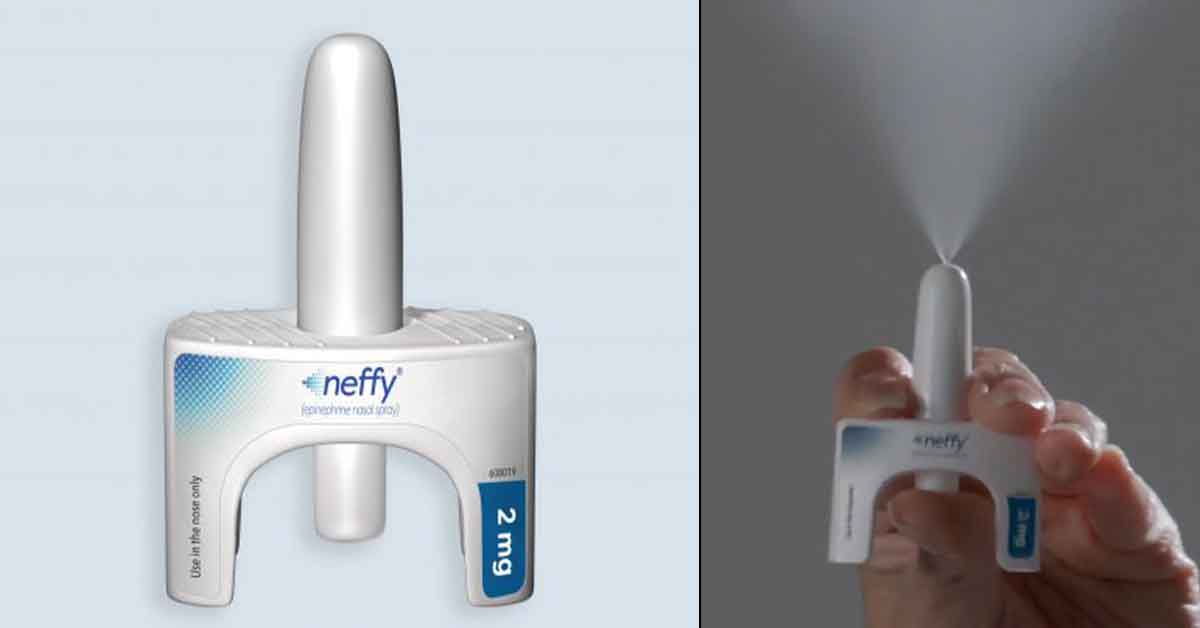Neffy is an epinephrine nasal spray alternative to the traditional auto-injector pending FDA approval. It has been shown through clinical trials to be as safe and effective as injected epinephrine but requires no needle: in an anaphylactic emergency, it is simply sprayed into a nostril.
Epinephrine is the only drug that can halt and reverse the progression of anaphylaxis, a severe, life-threatening reaction to a food, drug, insect venom or environmental substance, but it must be administered early to be most effective.
Fear of the auto-injector needle often leads to delays in administering epinephrine, delays that can potentially lead to serious complications and death. As such, the food allergy community is anxiously awaiting the approval of an alternative means of administering epinephrine. Neffy is the first such candidate to be considered, and the FDA was finalizing details for its approval, which was expected last September.
Until the FDA suddenly changed course and demanded a new study.
In their response letter, the FDA demanded completion of a pharmacokinetic/pharmacodynamic study assessing repeat doses of neffy compared to repeat doses of an epinephrine injection product under allergen-induced allergic rhinitis conditions to support approval.
This request comes after the recommendation of the FDA Advisory Committee in May 2023 to approve neffy without the need for additional studies to demonstrate its efficacy or safety. In August, the FDA and ARS agreed to conduct this study post-approval to further inform labeling.
It should be noted that approval for other nasal spray medications, like Narcan for opioid overdoses, did not require this type of study.
Despite numerous attempts, the FDA refused to say what details they hoped to learn from the new study that were not answered by the previous clinical trials. As a result, ARS initiated a formal dispute with the FDA to reverse the decision, but since the additional study is already underway and results are expected to be delivered to the FDA by the end of March/early April, the dispute is not likely to yield results.
ARS indicates the additional repeat dosing study is going well and will yield the expected results. Once the results are received by the FDA, the agency has 6 months to render a decision which, again, is expected to be approval.
Given their previous consideration of the Neffy, ARS hopes the FDA will issue their decision much sooner as they only need to consider the results of the repeat dosing study. [But we at SnackSafely.com are not convinced the FDA is acting in good faith.]
In the meantime, pressure on the FDA is the only way the food allergy community can engage to accelerate the approval process. If you haven’t done so already, please sign our petition entitled “FDA, Approve Life-Saving Nasal Epinephrine for Anaphylactic Emergencies,” which has already garnered 38,000+ signatures.
Food Allergy Advocacy Sends Petition with First 20,000 Signatures to FDA and Congress Demanding Approval of Nasal Epinephrine





